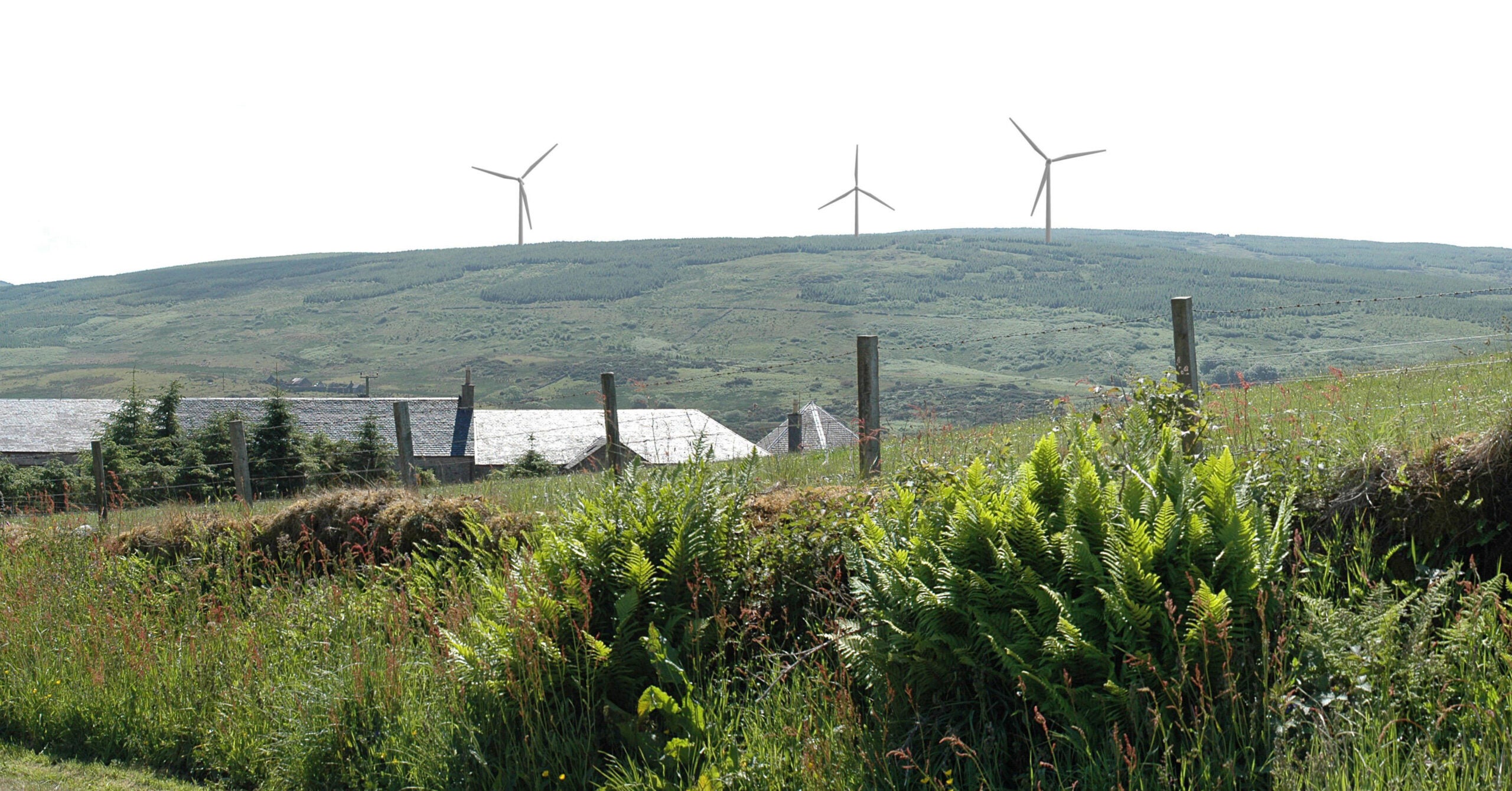
Scotland has ambitious net-zero targets including a statutory target of a 75% reduction in greenhouse gas (GHG) emissions by 2030 and net zero by 2045. While existing technologies can provide some of the emissions reductions required, innovations in new technology will also be needed. Effectively, the nation is now a testing ground for innovative low-carbon technologies and green solutions.
The combination of Scotland’s relatively small size, its natural resources, 19 universities, and unified approach across all industries and institutions creates an ideal environment for innovation to thrive.
A high proportion of the green solutions developed and proven in Scotland will likely be scaled up globally as other countries seek to achieve carbon neutrality by 2050. Therefore, what is happening in Scotland provides significant early opportunities for businesses to thrive and therefore for first-mover investors to buy into new technologies with strong potential for long-term returns.
Yet while the drive to net zero brings numerous investment possibilities, these new markets carry high risks that need financial support. Funding is essential for early-stage innovation to develop the vital technologies and solutions required to phase out fossil fuels. The Scottish Government is providing the necessary financial backing to support investors and help businesses to develop new green products as well as transition to a low-carbon, green economy.
Scottish Enterprise (SE) is an agency funded by the Scottish Government, providing a wide range of financial and non-financial support to companies benefitting the Scottish economy. SE formed an investment function in 2003 with an innovative private/public commercial co-investment model to widen the pool of investors in Scotland’s early-stage landscape. Having worked closely with the investment community both locally and internationally, SE has widened its commercial funding activities to achieve its objectives and de-risk new markets, providing patient capital where there are funding gaps. Most recently, SE added a loan offering to its portfolio of products for growth-focused SMEs.

Michelle Howell is head of investment management on Scottish Enterprise’s growth investments team. She explains how the sheer number of funding options available puts Scotland at a considerable advantage over other countries when it comes to green investment.
“I am blown away by the ever-increasing variety of funding support for the low-carbon energy sector and wider green innovation in Scotland,” says Howell. “The many available options also cater for the diaspora of exciting companies operating in this space in Scotland. Support ranges from grants, services in kind, public sector funds, investor funds, loans, accelerators and prize-based competitions to commercial R&D contracts.
“You have an ecosystem that is fully committed to the net-zero transition and importantly, a transition that is just and leaves nobody behind. This creates fertile ground for investment. Scotland is firmly focused on the scale of the investment opportunity and the need to significantly accelerate investment into net-zero solutions. That is because we see this as absolutely imperative to the green recovery and the future of our economy.”
The changing behaviour of investors
Many international investors are already taking advantage of what Scotland has to offer, while countless others are keeping a close eye on developments.
Howell says the push towards net zero is having a direct influence on business investment decisions in Scotland, with a dramatic change in priorities during the past year or so. This change is linked with increasing news stories and awareness about the effects of climate change. Also, there is the alignment of private capital with net-zero portfolios, demonstrated by coalitions such as the Glasgow Financial Alliance for Net Zero with over $130trn of private capital committed to transforming the global economy for net zero. In addition, there is the momentum of the COP26 Conference hosted in Glasgow in November 2021. Howell strongly believes this changed mindset from investors is here to stay.
“In the last 12–18 months, we have seen a seismic shift through our engagement with private sector investors and SE’s multiple touchpoints with the Scottish company base – and I believe that is driven by shifting global trends and environmental, social and corporate governance matters,” adds Howell.
“Investors are recognising the need to align their portfolios with net-zero targets, and therefore, companies are recognising the importance of sustainability in their planning.
“Staying relevant for investment is key; this has to be combined with the underlying principles of aligning purpose with profits. Equally, there is a recognition that significant innovation is required if we are going to deliver this transition. So, that creates significant growth potential and opportunities for companies and investors – and finance plays a key role in unlocking all of this. There is no pathway to net zero without the finance sector.”
Investing to reach net zero
Scotland has legally binding targets to cut 75% of all GHG emissions by 2030, with cuts increasing to 90% by 2040, and then achieving net zero by 2045, five years before the rest of the UK.
Clean energy is at the forefront of Scotland’s climate strategy. The country has seen widespread investment in wind farms, and now the potential of tidal turbines is starting to be realised by companies such as Orbital Marine Power. Investment from Scottish Enterprise alongside key partners has helped the company to develop the world’s most powerful tidal turbine, which connected to the grid last year. There is also the MeyGen project, where Scottish Enterprise has supported the largest planned commercial tidal project in the world.
Furthermore, investment is increasing in green hydrogen, which is a sector predicted for substantial growth within the next decade as industries search for viable new fuel sources. Technologies being developed in Scotland such as carbon capture usage and storage, and bioenergy also offer significant potential to reduce emissions.
“While clean energy is an essential part of the transition, it is only one part of the solution,” explains Howell.
Reaching net zero is going to take a united effort across all industries, and Scotland’s growing tech sector is expected to make an important contribution to decarbonisation; for example, using AI and analytics to increase energy efficiency in industrial operations.
“The key question across all sectors is: how do we decarbonise all the tricky industries? These include cement, plastic, steel, aluminium, food production, farming and construction. There has to be a significant focus on energy efficiency, circular economy, designing out waste, keeping materials in use, reducing environmental impacts, and how technologies and investment are required to achieve this. Importantly, investing in nature and restoring biodiversity is a prerequisite. Transition to net zero will require significant changes and is no longer optional,” says Howell.
“That brings real economic opportunities and potential for financial returns for the finance community. In our portfolio, we have got some incredible companies. One is Intelligent Growth Systems, a Scottish agritech business delivering vertical farming solutions. In November, it announced the conclusion of its Series B funding round with a total raise of £42.2m, including US-based agricultural investors. That is a business SE has supported since start-up through equity co-investment.
“Another company in our portfolio is Spire Global Inc, a space-powered Earth data company that collects data from space to monitor aviation, maritime and weather patterns across the world. It delivers on indicators related to disaster risk reduction, as well as mitigation, adaptation, impact reduction and early warning. The company is headquartered in San Francisco, with a growing base in Glasgow. A key milestone for the company was a merger with NavSight Holdings and a listing on the New York Stock Exchange in August 2021.”
Green investment portfolio
In Scottish Enterprise’s investment portfolio, there are more than 340 organisations. These represent a wide range of Scotland’s innovative high-growth potential early-stage companies, covering multiple sectors and working with a variety of co-investors.
During the last year alone, Scottish Enterprise directly invested £68m into 177 companies alongside £122m of private sector funding. Scottish Enterprise has been supporting low-carbon technologies and innovations for more than 15 years and increasingly is seeing net-zero-related innovation and solutions form a significant proportion of its activity.

Last year proved to be SE’s most successful year on record in terms of returns, with an income of £55m across its diverse investment portfolio – predominantly through exits. Given the exit activity being witnessed this year, SE is expecting another record-breaking year for income.
Smarter Grid Solutions is a good example of a recent exit. It helps electricity operators automate the supply and demand of power while also helping connect renewable energy to the grid. The company has gone from strength to strength since SE first co-invested back in 2008, and recently attracted global attention leading to its acquisition by Mitsubishi Electric. Mitsubishi will now provide growth capital and allow the company to continue expanding and go global from its base in Scotland.
Scottish Enterprise’s investment team can help businesses find sources of finance, engage with funders and secure investment to grow. Providing expert support and advice, SE can help businesses access a range of funding options, including its commercial co-investment funding opportunities and loan funding.
To find out how to access the Scottish Enterprise Funding Database, download the document on this page. This document also provides key information on the relevant channels for further business support within Scotland, alongside highlights from recent funding calls.
Scottish Development International provides support for investors around the world seeking involvement in a specific company or a technology in Scotland. SDI can facilitate introductions between investors and the necessary businesses or institutions.





